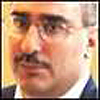Evan Schuman
The Centers for Disease Control and Prevention does not routinely get involved in telling hospitals how to run operations, but with increasing reports of EHR deployment problems, the Atlanta-based operation now sees the need to act.
The joys of unintended consequences never end. The Patient Protection and Affordable Care Act required hospitals to get paid based on how much they improved their patients' health rather than on how many tests and procedures were completed. The intent was to improve patient care.
Few healthcare IT policies these days are as delicate, sensitive and potentially emotionally explosive as efforts to restrict or regulate employee social media activity. And yet hospital hierarchies are routinely stepping on these political minefields as providers try to protect their reputations.
The Centers for Disease Control and Prevention does not routinely get involved in telling hospitals how to run operations, but with increasing reports of EHR deployment problems, the Atlanta-based operation now sees the need to act.
When an organization experiences a major data breach and puts out a news release, the point is to comfort people that the news isn't as bad as it sounds. But at the same time, it's critical to be precise with language -- lest that organization be compelled to subsequently issue the dreaded, "What we actually meant to say in Monday's statement…" statement.
The U.S. Department of Health & Human Services has launched a federal probe into HIPAA privacy violations at the University of Cincinnati Medical Center, according to an HHS spokesperson.
Imagine if almost everyone walking into your hospital -- patients, doctors, visitors, salespeople -- was carrying an active homing beacon, which broadcast, unencrypted, their presence and repeatedly updated exact location to anyone who chose to listen.
The University of Cincinnati Medical Center is at the center of a legal battle that is the nightmare of every healthcare organization corporate counsel. The allegation is that a financial services employee of the hospital accessed the detailed billing records of a patient with a sexually transmitted disease and deliberately and maliciously published those records on Facebook, taunting and ridiculing the patient.
Apple on Monday touted its working with the Mayo Clinic as it rolled out an app that would piece together healthcare information from many third-party apps -- including one from Mayo -- to give consumers a comprehensive medical view on a mobile device.
A Stanford University engineering group has come up with a way to manipulate deep body implants -- such as pacemakers, nerve stimulators and brain stem devices -- wirelessly.
